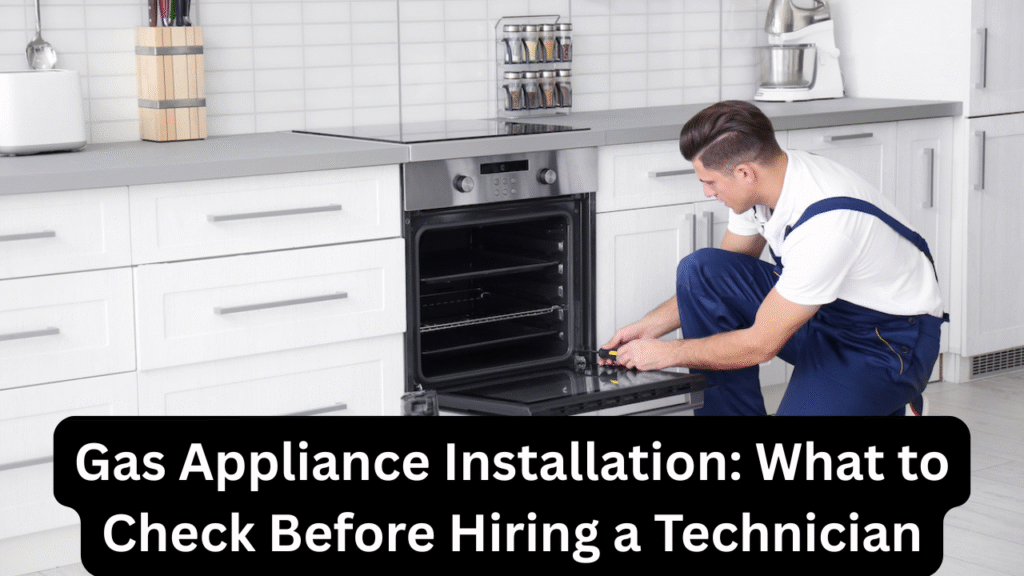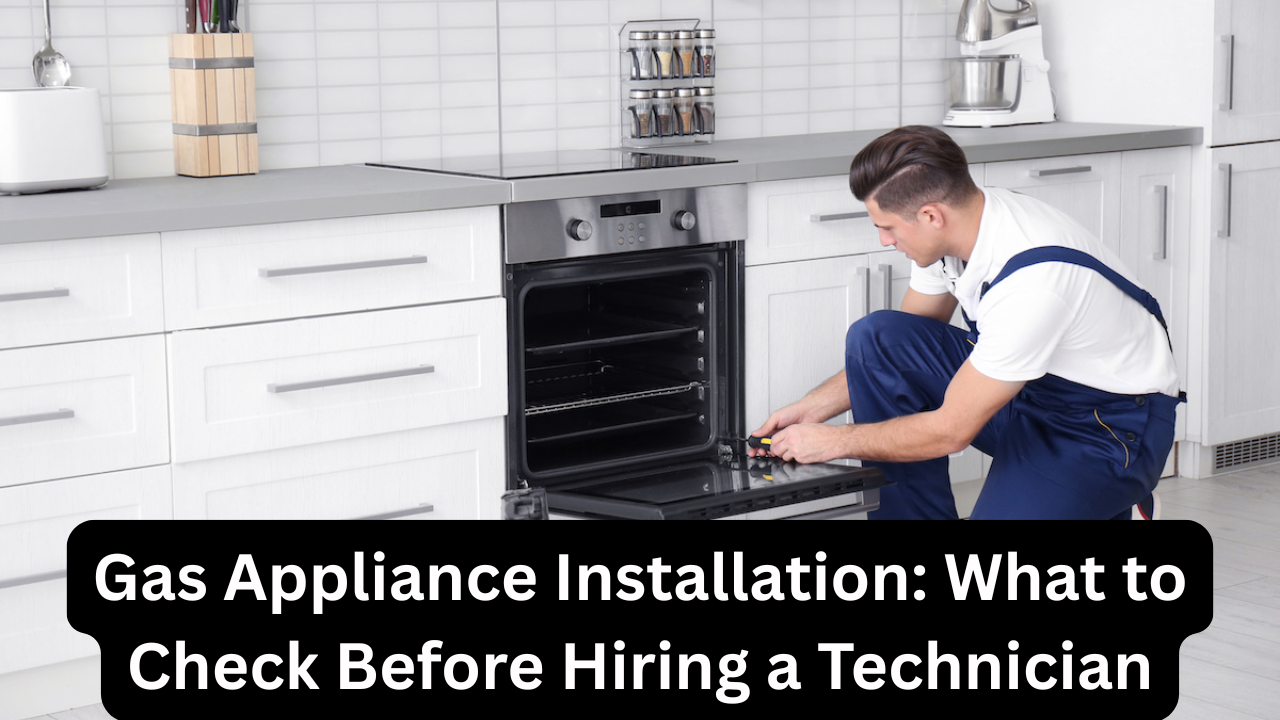
Installing a gas appliance—whether it’s a stove, water heater, furnace, or fireplace—requires precision, technical expertise, and strict safety compliance. An improper installation can lead to gas leaks, poor performance, or even dangerous hazards like fire and carbon monoxide exposure. Choosing the right technician is the most important step in ensuring your appliance is installed safely and efficiently.
This guide outlines the key factors you should check before hiring a gas appliance technician, helping you make an informed and safe decision.
Why Professional Installation Matters
Gas appliances must meet both manufacturer specifications and local safety codes. Professional technicians have the knowledge, tools, and certification to:
- Ensure proper gas connections.
- Verify ventilation and exhaust systems.
- Perform leak and performance tests.
- Provide compliance documentation for insurance or warranty purposes.
Cutting corners with unqualified installers can result in costly repairs, health risks, or legal problems.
Key Checks Before Hiring a Gas Appliance Technician
1. Verify Licensing and Certification
Always confirm that the technician is licensed and certified to work with gas systems in your region.
Why it matters:
- Licensing ensures they have undergone proper training.
- Certification proves they meet safety standards.
2. Check Insurance Coverage
A qualified technician should have liability insurance to cover potential damages or accidents during installation.
Tip: Ask for proof of insurance before work begins.
3. Review Experience and Specialization
Some technicians specialize in specific appliance types or brands. Choose one who has experience with your exact appliance model and type.
4. Ask About Safety Compliance
Ensure the technician follows all local building codes, gas regulations, and manufacturer guidelines.
5. Request References and Reviews
Customer feedback is one of the most reliable ways to judge workmanship and professionalism.
6. Compare Detailed Quotes
Avoid choosing solely on price. A good quote should include:
- Labor cost.
- Parts and materials.
- Safety testing.
- Removal of old appliances (if applicable).
Essential Questions to Ask a Gas Appliance Installer
- Are you licensed and certified for gas appliance work?
- Do you provide written installation reports or compliance certificates?
- What safety checks will you perform after installation?
- How do you handle unexpected issues during installation?
- Do you offer any post-installation service or warranty?
Overview Table
| Check Item | Why It’s Important | What to Ask/Verify |
|---|---|---|
| Licensing & Certification | Ensures legal compliance and expertise | Ask for license number |
| Insurance | Covers damage or injury during work | Request proof of insurance |
| Experience | Increases quality and efficiency | Ask about years in service |
| Safety Compliance | Prevents hazards and meets regulations | Confirm adherence to local codes |
| References & Reviews | Reflects reliability and skill | Read online reviews or call references |
| Written Quote | Avoids hidden costs | Ensure detailed breakdown |
Table: Red Flags When Choosing a Technician
| Red Flag | Why It’s a Concern | Better Alternative |
|---|---|---|
| No license or expired credentials | Work may be unsafe and illegal | Hire licensed professionals |
| Extremely low quote | May skip safety steps or use poor parts | Choose balanced pricing with clear scope |
| No written agreement | Disputes over cost and scope likely | Always get written contracts and receipts |
| Refuses to provide references | May indicate poor past performance | Request at least 2–3 recent references |
| No proof of insurance | Risk of paying for damages yourself | Verify active liability coverage |
The Installation Process You Should Expect
A qualified technician will typically follow these steps:
- Pre-installation inspection – Assess gas supply, ventilation, and placement.
- Connection setup – Secure gas line connections according to safety standards.
- Ventilation check – Ensure proper exhaust or flue systems are in place.
- Performance testing – Verify proper operation, flame stability, and efficiency.
- Leak testing – Use professional tools to check for gas leaks.
- Safety instruction – Explain safe operation, maintenance, and emergency steps.
Post-Installation Best Practices
After installation:
- Keep the compliance certificate or installation report for warranty and insurance purposes.
- Test your appliance regularly for proper function.
- Schedule annual servicing to maintain safety and efficiency.
Conclusion
Choosing the right technician for gas appliance installation isn’t just about getting the job done—it’s about ensuring safety, compliance, and long-term performance. By checking licensing, insurance, experience, and references, you greatly reduce the risk of unsafe installations. Remember, the cheapest option isn’t always the safest; professionalism and qualifications should always be the top priority.
3 One-line FAQs
Q1: Do gas appliance installers need a license?
A1: Yes, licensing ensures they are trained and authorized to work with gas systems.
Q2: Should I get a written quote for gas appliance installation?
A2: Absolutely—this prevents hidden costs and sets clear expectations.
Q3: What’s the biggest risk of hiring an unqualified technician?
A3: Poor installation can lead to gas leaks, fire hazards, or carbon monoxide poisoning.

